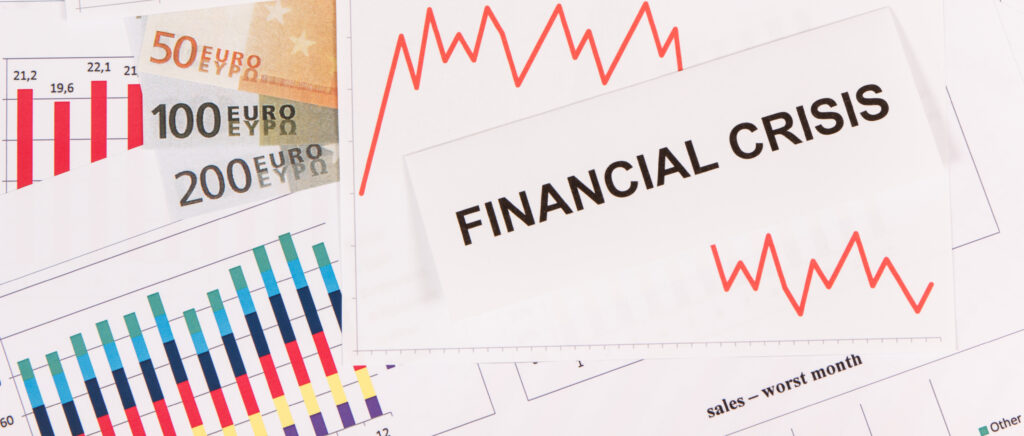cristina

Market Pressures and Political Shifts: A Tumultuous Week Ahead
By: Amber Kanwar, Host In the Money with Amber Kanwar
As we approach a crucial week in global markets, concerns over new U.S. tariffs and political developments in Canada are weighing heavily on investors. North American markets are under pressure ahead of the U.S. “Liberation Day” on April 2nd, with the announcement of reciprocal tariffs expected to impact global trade. Meanwhile, Canadian politics is heating up as Prime Minister Mark Carney’s Liberals hold an edge in the upcoming federal election, while tax proposals from the Conservatives may change the dynamics for Canadian investors. Automakers, tech stocks, and even the vaccine industry are facing turbulence, all while investors continue to flock to safe havens like gold and bonds. Amidst this uncertainty, Elon Musk’s latest move merging Twitter with his AI company xAI, is another key development shaking up the tech landscape.
D-day: Futures are slipping ahead of US President Donald Trump’s “Liberation Day” tariff announcement scheduled for 4 pm ET from the Rose Garden. Stocks somehow managed to close higher yesterday, April 1st. “A good handful of investors believe the tariff announcement will be a ‘buy the news’ event, as it removes some of the uncertainty hanging over the market,” noted Dave Lutz of Jones Trading. Rumors about what the tariffs might entail are circulating rapidly, but instead of speculating, I prefer to wait and see what is officially revealed at 4 pm. While some investors might be tempted to “buy the dip,” economic data indicates that tariffs are already impacting the US economy. Yesterday’s report from the manufacturing sector showed a sharp rise in prices paid, reaching the highest level since 2022, while manufacturing activity contracted and employment figures hit a six-month low. The formula here is: inflation + slowing growth = stagflation.
Stock Market Under Pressure Ahead of “Liberation Day”
As of March 31st, the stock market remains under strain, with futures taking a hit ahead of what’s being termed “Liberation Day” on April 2nd. This is the day the U.S. plans to unveil its new tariff strategy, which is expected to be reciprocal. According to the Wall Street Journal, the White House is currently scrambling to finalize details of this new tariff agenda, with reports suggesting President Trump is urging his team to take a more aggressive approach, targeting virtually all U.S. trading partners.
The S&P 500 has recorded its fifth weekly loss in six weeks, while the TSX has fallen for the third time in four weeks. Gold has emerged as a safe haven for investors, reaching new record highs, while bonds have seen a rally. Meanwhile, Japanese equities have taken a significant blow, reaching their lowest level since August 2024.
BMO economist Sal Guateri noted that broad tariff hikes of more than 25% and aggressive counter-tariffs could push the U.S. economy into recession, with markets sensing that we may be heading down this perilous road. In addition to the tariff updates, upcoming payrolls data and comments from Federal Reserve Chair Jerome Powell this week will be pivotal in determining the direction of the equity markets. Should tariffs come in less severe than expected, we could see a short-term rally in the markets.


Canadian Politics: Liberal Edge Ahead of Federal Election
With less than a month until Canada’s federal election, polling suggests the Liberals, led by Prime Minister Mark Carney, hold an edge over the Conservatives. According to Polymarket, there is a 71% chance Carney will secure a fourth term. To counter this momentum, Conservative leader Pierre Poilievre has proposed a tax incentive for Canadian businesses that reinvest their proceeds in the country, offering a tax deferral on capital gains from July 1, 2025, to December 31, 2026.
If successful, these measures could alter the financial landscape of Canadian stocks, making them more attractive compared to international markets. Ernest Wong, Head of Research at Baskin Wealth, pointed out that such changes would significantly shift the calculus of owning Canadian stocks.

Automotive Sector Faces Pressure From Tariff Uncertainty
The automotive sector is taking a significant hit following President Trump’s statement that he “couldn’t care less” if automakers are forced to raise prices in the face of a 25% tariff set to take effect this Thursday. European automakers like BMW and Volkswagen are feeling the heat, while shares of Ford and GM have also dipped. Auto parts suppliers like Magna and Linamar are not immune either.
Even companies indirectly tied to the auto industry, such as Blackberry, are facing potential consequences. RBC’s Paul Treiber warned that challenges surrounding tariffs and delays in software-defined vehicle programs at major automakers could hinder the growth of the Internet of Things (IoT) sector, a key revenue driver for companies like Blackberry.
Airlines are also facing pressure, with Air Canada seeing its shares hit the lowest point since May 2020. According to reports from the New York Times, Canadian travelers have significantly reduced trips to the U.S., resulting in several airlines cutting back on U.S. flights.
The Magnificent 7 and Tech Stocks Enter Bear Market
The Magnificent 7 — a group of major tech stocks — has fallen into a bear market, dropping more than 20% from their December peak. Interestingly, Citi’s Chief U.S. Equity Strategist Scott Chronert is upgrading the tech sector to “overweight,” especially software-related names, noting that they are relatively insulated from tariff risks.
Vaccine Makers and Gene Therapy Companies Suffer After FDA Resignation
The resignation of FDA official Peter Marks, following allegations of misinformation from Health and Human Services Secretary Robert F. Kennedy Jr., has led to a sell-off in vaccine makers and gene therapy companies. Moderna, Novavax, and Pfizer are all down, with gene therapy stocks also taking a hit.

Elon Musk’s Self-Deal: X Acquires Twitter and Merges with xAI
In a controversial move, Elon Musk has merged his artificial intelligence company, xAI, with Twitter (now called X) in a deal that values the AI company at $80 billion and Twitter at $33 billion. Musk, who purchased Twitter in 2022 for $45 billion, now claims that the futures of both X and xAI are intertwined. This merger provides Musk’s investors with a chance to benefit from the AI upside after their initial investment in Twitter.

Tesla shares are down nearly 3% in pre-market trading, following preliminary data indicating a drop in sales in China. March deliveries in China fell by 11.5% year-over-year, according to China’s Passenger Car Association. Investors are awaiting global sales figures due before the opening bell, which will shed light on how much Elon Musk’s political pursuits have impacted sales. In the meantime, Tesla is becoming a popular target for short-sellers, with short positions jumping 21% and 3% of the shares outstanding now short.
DISCLAIMERS:
The information provided is for informational purposes only and does not constitute financial, investment, or professional advice. The views expressed by the author are her own and do not necessarily reflect the opinions of any organization or company. Always consult with a qualified financial advisor or professional before making any investment decisions.
Share this post
Subscribe to Newsletter

Save 15% off your first purchase at EVOLVE Shop when you subscribe.
– Advertisement –
Latest Stories





